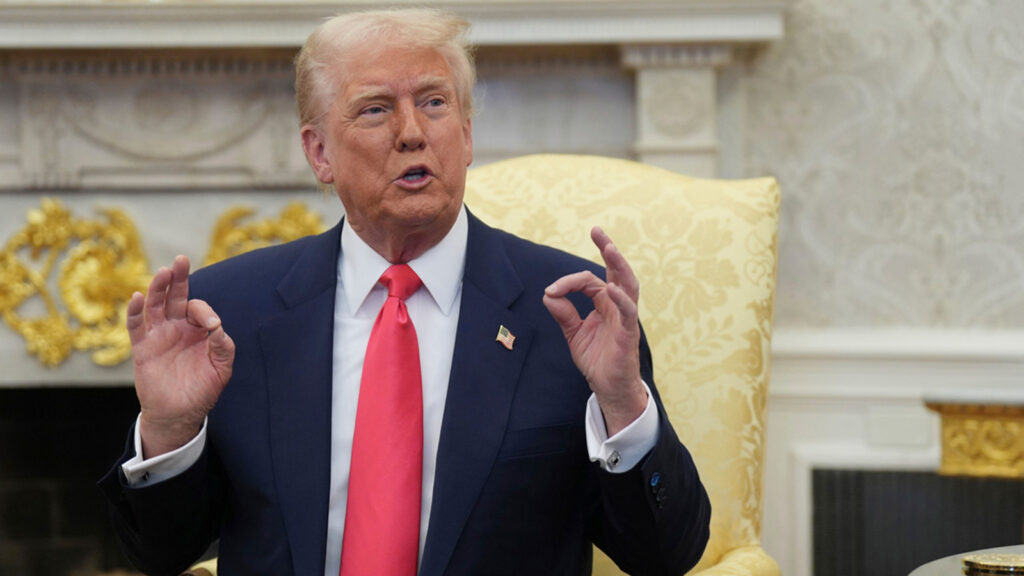In a surprising turn of events, a federal appeals court has given the green light to President Trump’s executive orders aimed at curbing diversity, equity, and inclusion (DEI) programs within the federal government. This decision marks a significant victory for the Trump administration amidst a series of legal setbacks. As the nation grapples with the implications, the court’s ruling has ignited a fierce debate on the future of DEI initiatives.
Understanding the Court’s Decision
The Fourth Circuit Court of Appeals, comprised of a three-judge panel, has ruled in favor of the Trump administration. The court found that the administration is likely to succeed in overturning a lower court’s decision that deemed Trump’s executive orders unconstitutional.
What Are the Executive Orders?
The executive orders in question include one that seeks to abolish DEI programs within the federal government and another that prohibits grant recipients from operating such programs. These orders have stirred controversy since their introduction, with supporters praising them as a move towards merit-based systems and critics decrying them as detrimental to progress on diversity and inclusion.
The Judges’ Stance
Interestingly, two of the judges on the panel were appointed by Democratic presidents, yet they sided with the Trump administration. They have allowed the enforcement of these policies while they deliberate on the final decision regarding the constitutionality of the orders.
The Impact on Diversity, Equity, and Inclusion
The court’s decision has far-reaching implications for DEI programs across the federal government. These programs have been instrumental in promoting a more inclusive workplace and addressing systemic inequalities. With the Trump administration’s orders now moving forward, the future of these initiatives hangs in the balance.
Concerns and Criticisms
Opponents of the executive orders argue that they undermine years of progress in fostering diversity and inclusion. They fear that the absence of DEI programs could lead to a regression in workplace equality and hinder opportunities for marginalized groups.
Supporters’ Perspective
On the other hand, supporters of the orders believe that they promote a merit-based system, free from what they perceive as divisive DEI initiatives. They argue that these policies will ensure that individuals are judged solely on their abilities and qualifications, rather than their race or gender.
Insights from the Judiciary
Judge Albert Diaz, in a concurring opinion, offered a poignant perspective on the political rhetoric surrounding DEI. He described it as “a monster in America’s closet,” suggesting that the fear and misunderstanding of these programs are unfounded.
Praise for DEI Advocates
Judge Diaz praised those working to implement DEI policies, stating that they “deserve praise” for their efforts to create an environment where everyone feels respected and valued. He emphasized the positive impact of these initiatives, highlighting how they have allowed previously marginalized Americans to thrive in various sectors.
The Power of Light Over Shadows
In a metaphor-rich passage, Judge Diaz likened the fear of DEI to a “mere shadow” that can be dispelled with “light.” He underscored the importance of understanding and embracing these programs as a means to foster a more equitable society.
The Broader Implications
The court’s decision to allow Trump’s executive orders to move forward has sparked a national conversation on the role of DEI in the federal government and beyond. It raises questions about the balance between promoting diversity and ensuring a merit-based system.
The Future of Federal Employment
With these orders now in effect, federal employees and job seekers may face a new landscape. The absence of DEI programs could alter hiring practices, training initiatives, and workplace culture. It remains to be seen how these changes will impact the diversity of the federal workforce.
Impact on Grant Recipients
Another significant aspect of the executive orders is the restriction on grant recipients. Organizations that rely on federal funding must now navigate the challenge of operating without DEI programs. This could affect their ability to promote inclusivity and support marginalized communities.
Public and Political Reactions
The court’s decision has elicited strong reactions from both sides of the political spectrum. Democrats and progressive groups have condemned the move, arguing that it undermines efforts to address systemic inequalities. Meanwhile, conservatives and supporters of the Trump administration have welcomed the decision as a step towards a more merit-focused approach.
Democratic Response
Democratic leaders have vowed to fight the executive orders, emphasizing the importance of DEI programs in creating a fair and inclusive society. They argue that these initiatives are crucial for addressing historical disparities and ensuring equal opportunities for all.
Republican Support
Republicans, on the other hand, have praised the court’s decision, viewing it as a victory for meritocracy. They contend that DEI programs can lead to reverse discrimination and that the focus should be on individual achievement rather than group identity.
Looking Ahead
As the Fourth Circuit Court of Appeals continues to deliberate on the constitutionality of Trump’s executive orders, the nation watches closely. The final decision could have lasting implications for DEI programs not only in the federal government but also in the private sector and educational institutions.
Potential Legal Challenges
Regardless of the court’s final ruling, it is likely that the issue will face further legal challenges. Civil rights organizations and advocacy groups are prepared to fight for the preservation of DEI programs, potentially taking the case to higher courts.
The Role of Public Opinion
Public opinion will also play a crucial role in shaping the future of DEI initiatives. As awareness grows and more individuals share their experiences, the demand for inclusive policies may influence political and legal outcomes.
Conclusion
The Fourth Circuit Court of Appeals’ decision to allow President Trump’s executive orders limiting diversity, equity, and inclusion programs to move forward has ignited a national debate. As the court continues to deliberate, the impact of these orders on federal employment, grant recipients, and the broader fight for equality remains uncertain. The outcome of this legal battle will undoubtedly shape the future of DEI initiatives in the United States.
Whether you support or oppose these executive orders, one thing is clear: the conversation around diversity, equity, and inclusion is far from over. As a nation, we must continue to grapple with these complex issues, striving for a society that values both merit and inclusivity.
Source: internewscast.com

